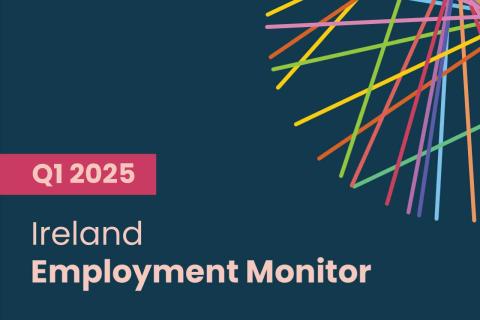Cork Thought Leadership Roundtable- Change and Transformation

This week, business leaders from diverse industries gathered at Morgan McKinley’s Cork office to share their perspectives on navigating change and transformation in today's dynamic business landscape.
Key Themes
Throughout the event, several topics emerged from the discussions.
- Project Sponsorship vs. Change Leadership
- Understanding Change Management Frameworks
- Empowering Employees with Knowledge
- Communication Strategies
- Adapting to Remote Work
- Embracing Agile Methodologies
- Cultural Considerations
- The Increasing Role of AI
Project Sponsorship vs. Change Leadership
Leaders highlighted the distinction between project sponsorship and change leadership, emphasising the importance of effective leadership in driving organisational change.
"There is a huge difference between project sponsorship and change leadership,"
they noted, underscoring the critical role of change leaders in guiding teams through transformation initiatives.
Understanding Change Management Frameworks
We discussed the importance of understanding change management frameworks and methodologies to lead transformation initiatives effectively. Starting with a clear framework and understanding who will be affected by the change were highlighted as crucial first steps; however, other businesses noted that while it’s great to have the frameworks in their tool belts, they’re not one size fits all for every organisation.
Empowering Employees with Knowledge
A recurring theme emphasised the importance of empowering employees with the right knowledge and skills.
"Our people don't need to know everything; they just need enough knowledge to be dangerous,"
remarked one attendee. This perspective underscores the value of providing employees with the tools and resources they need to thrive in a rapidly changing business environment.
Communication Strategies
There were discussions on communication strategies during change management processes. Ensuring clear communication channels and involving stakeholders from the beginning were emphasised as key strategies for successful change implementation. A strategy shared by many organisations present was branding each new change programme from the outset, and making sure that the brand was visible throughout the organisation at every step. This helped people identify with the programme and was vital to the project's success.
Adapting to Remote Work
With the rise of remote work, participants shared insights on how organisations adapt their change management strategies to remote environments. Challenges such as maintaining effective communication and engagement were discussed, along with innovative solutions to address these challenges. Again, communication was key; however, it was noted that this is a key challenge for organisations undergoing significant periods of change.
Embracing Agile Methodologies
Some participants highlighted the importance of embracing agile methodologies in change management. Agile approaches allow for greater flexibility and responsiveness to changing circumstances, enabling organisations to adapt more effectively to evolving business needs. However, global change programmes can often be likened to turning a large cruise ship, and while it’s important to be agile and allow for innovation, the direction of travel needs to be steady. Too much change can cause chaos and change fatigue.
Cultural Considerations
The importance of considering cultural factors in change management was also discussed. Leaders emphasised the need to understand and respect cultural differences within organisations, as well as the impact of culture on change acceptance and implementation.
The Increasing Role of AI
Another thought-provoking discussion centred on the role that artificial intelligence (AI) is having on organisations. While every business is looking for a way to make use of emerging technologies to their advantage, the dangers to, and resistance from, the workforce were also made clear. However, the potential for both employees and employers was made clear.
As one participant pointed out,
"AI won't replace an accountant, but an accountant using AI tools will replace one that can't."
Conclusion
Sharing experiences and exchanging insights and best practices on change and transformation showed there was commonality in issues facing the industry today. From discussions on project leadership to the role of AI and the importance of empowering employees, attendees gained valuable perspectives to inform their strategic decision-making and drive organisational success.
As leaders continue to navigate an era of unprecedented change, we hope that events like this will play a crucial role in fostering collaboration, innovation, and growth. By harnessing the collective wisdom of industry leaders and exploring key themes in change management, businesses can adapt to evolving challenges and seize opportunities for long-term success.
If you would like to get involved in future events in Cork, reach out to Mark at mstanton@morganmckinley.com.
Author:
Mark Stanton, specialising in Project, Transformation & Change recruitment














